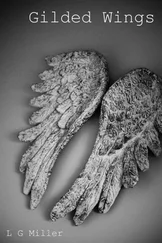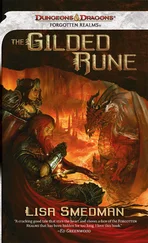“Do you know anything about this?” I ask Dad, but he’s busy studying the mural of a tiger on the far wall. It’s painted in traditional Asian style, with the tiger stretched out as if running. Its jaws gape wide, revealing sharp, jagged teeth.
“Annyeong hashimnikka,” Grandfather greets us as he enters the room. He’s wearing loose black pants and a silken gray tunic that buttons down the center. We bow as is expected.
“That is a reproduction of General Yu-Shin Kim’s uniform,” Grandfather says, nodding toward the manikin.
I don’t know what to say and apparently neither does Dad. The silence that follows is painfully awkward. I find myself thinking of my friends back in L.A. who would rush into their grandparent’s arms with hugs, and my chest aches for that kind of openness. But they didn’t have thousands of years of tradition and ancestors hanging over them.
I tap my fingers against the sides of my thighs, waiting for his eyes to turn to mine and frown. When his attention does slide to me, his eyelashes squeeze tight and he nods once. I squirm and lower my eyes, not expecting that response.
“So she stays,” Grandfather says.
“Abeoji,” Dad says, “We’ve just arrived. Please try to keep the peace.”
“Peace?” Grandfather scoffs, settling onto a pillow at the traditional square table in the room’s center. “Peace is what I live for. What our ancestors lived for.”
“Good,” Dad says, now smiling. His shoulders relax and he, too, sits.
“Sit, sit.” Grandfather waves to me, his gold ring flashing as he does so.
We sit cross-legged on silk cushions on the oak floor as a servant sets out tea and tteok for us. I choose a pink-colored one and pop it into my mouth. Sesame and brown sugar have been tucked inside. These are the best rice cakes I’ve ever tasted.
“How do you like Korea?” Grandfather asks me.
“It’s okay, I guess,” I say, studying the tea leaves in my cup. “But I miss my friends back home.”
“I am sure you miss your American education,” he says.
My head jerks up, and I search his face. He looks dead serious.
“She attends an international school,” Dad says. “They have the same American education as any top school in the States.”
Grandfather nods while crossing his arms. “Do you not think boarding school in America would be more appropriate for Jae Hwa? Many families send their children to boarding schools. Taking her away from her homeland must be difficult.”
I nearly drop my teacup. “There are boarding schools in L.A.”
“Is that so?” Grandfather asks.
Boarding school! Why hadn’t I thought of that? Maybe Grandfather’s antagonism might work for my good.
“It’s out of the question.” Dad’s scowl is firmly back in place. “Jae needs more time to adjust. Besides, she’s far too young to be off by herself.”
“Jae seems quite mature,” Grandfather says. “I would be pleased to contribute any funds needed for such an enterprise.”
“No,” Dad says flatly.
“It is merely a thought. I do not see why you keep resisting my generosity.” Grandfather’s eyes are tight with anger. Or is it worry?
“I love your painting of that tiger,” I say, deciding to switch the topic. “It almost looks alive.”
“Ah yes, the Tiger of Shinshi,” Grandfather says. “You remember the legends, yes?”
I reach for another tteok . “Something about him protecting the Korean people throughout time?”
“Excellent memory!” Grandfather beams. “It is he who watches over the Golden Thread that binds our people as one.”
“Speaking of time, when are the others supposed to arrive?” Dad’s still on edge.
“I commissioned an esteemed Korean-American painter to create the mural,” Grandfather says, ignoring Dad’s comment. I can’t blame Dad, though. It’s strange no one else from our family has arrived yet. “It serves as a continual reminder of my duties here on Earth.”
Yep. He’s completely michutda .
“Jae Hwa, would you care to take a stroll with me on the beach?” Grandfather asks.
My hand freezes while I’m reaching for my teacup. He wants to take me for a walk? The granddaughter he’s so ashamed of that he’s thinking of ways to get me out of the country? Or have I somehow exaggerated how he feels about me? Mom had always said I go overboard sometimes. Still, this could turn into an opportunity—like boarding school.
The servant hurries over and hands me my coat, scarf, and boots. As we step out the back door, Dad calls to Grandfather, his forehead bunching up like it does when he’s worried.
“Just a walk, Abeoji,” he says. “None of your stories, remember? She doesn’t need nightmares.”
Nightmares? Two days ago I would’ve glared at Dad for treating me like a five-year-old. But today I start to wonder if Dad isn’t right.
Once outside, I draw in a breath of salt air and gaze down into the dark-indigo ocean, the afternoon sun scattering rays across its surface.
Mom would’ve wanted to paint this place.
Crops of rounded hills rise up out of the water. Sluggish waves lap against the black sand like fingers touching a keyboard. It’s such a contrast to the ten-foot waves that crash against the Malibu beaches where my friends and I hung out.
“These are the tidal flats.” Grandfather swings open a waist-high gate and starts down a set of wooden stairs that lead to the beach. “Soon, very soon, all the water will be gone, leaving only mud.”
I can’t imagine how that much water could disappear. I hurry after him. The sound of wind and rushing water grows once I hit the dark sand, hard and icy. I scramble to catch up as he strides out to stand at the muddy water’s edge, his hands clasped behind his back, his eyes tuned to the skyline.
“They said it was impossible to land an army here in Incheon.” Grandfather’s wrinkles appear deeper in the daylight. “That is why General MacArthur surprised the North Koreans and won the war. He took the impossible and made it possible.”
Now I know where Dad gets all his sayings. Dad is big on motivational stuff like “The best way to predict your future is to create it,” which he has hanging over his desk.
“So you think it’s possible for me to go to boarding school?” I ask.
“Of course. I must first convince your father.”
“That might be more difficult than you think.”
He chuckles, his chin coming up as he does. “Jae Hwa, your father and I have disagreements. But my greatest concern is for your safety.”
My stomach rolls, wondering how he could know about my hallucination. But he couldn’t know. He’s probably thinking about boys. I smile. “I don’t think you need to worry about me, Haraboji.”
If he only knew. Like when the third-grade class bully, Jacob Cantor, strutted up to me, pulled my long braid, and called me a worthless immi (short for immigrant ). If he’d been smart, he would’ve picked on some other immi. But unlucky Jacob picked me. I stood and knocked him a blow that sent him tumbling into the trash can. Where he probably felt right at home.
I say, “I have a black belt in Tae Kwon Do. Besides, Seoul is way safer than L.A.”
Except for what happened last night, I think. I rub the back of my head, pushing away that thought.
“Not for you,” he says.
I press my lips together and resist rolling my eyes. Here comes the whole girls-need-to-be-protected lecture.
I’m about to explain to him how I can take care of myself when he motions to a set of smooth rocks to our left and sits on one. I follow, dragging my boots so they make a snakelike trail in the sand behind me. Great. I’ve let myself get lured out here with my lunatic grandfather.
Читать дальше












